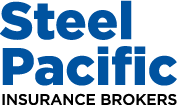Small business owners tend to be born optimists with little inclination to think about what could go wrong. That’s why it pays to have an insurance broker in your corner to safeguard what you’ve worked for.
Paul Harrison’s family-owned shoe shop in Sydney’s Neutral Bay has operated out of various locations for more than half a century. It’s used insurance brokers for the past 35 years.
“When I came on board, we already had insurance but not at the level we needed,” says Harrison. “Most of the insurance we had was good, but it took time. If we made a claim, an assessor would come along; then he’d send you forms to fill out before repairs could begin. All that time you’re not trading.”
Save yourself time
Anyone who has compared car, home or health insurance policies to try to find the best deal knows how time consuming it can be. Choosing a business insurance package is even more complex because of the range of risks requiring cover.
A business insurance broker will not only save you time sourcing the right policy, they can also save time and money if you need to make a claim.
That was Harrison’s recent experience with his long standing Steadfast insurance broker.
“We had a leakage from the residential unit above our premises that ruined our ceiling, stock and floor. With rent and wages to pay, you can’t afford to be out of business for two months. Our business insurance broker was onto it straight away. We were able to replace our flooring within two days and probably missed five days’ trading in all”.
Utilise your business insurance broker’s experience
Small business owners are great at what they do, whether it’s running a café or a consultancy. But they are rarely insurance experts. “What they may not understand is the broad range of risks they face,” says Dallas Booth, chief executive of the National Insurance Brokers Association(NIBA).
A business insurance broker will help identify the risks your business faces, then get the insurance package that matches those risks. “There’s no point buying a business package off the shelf if it only covers some of your risks,” says Booth.
“I don’t think you can do that on your own. You may think you know what can go wrong but you never realise how much [an adverse event] impacts on your business going forward,” says Harrison.
Read the full Steadfast article here.
